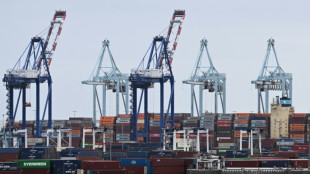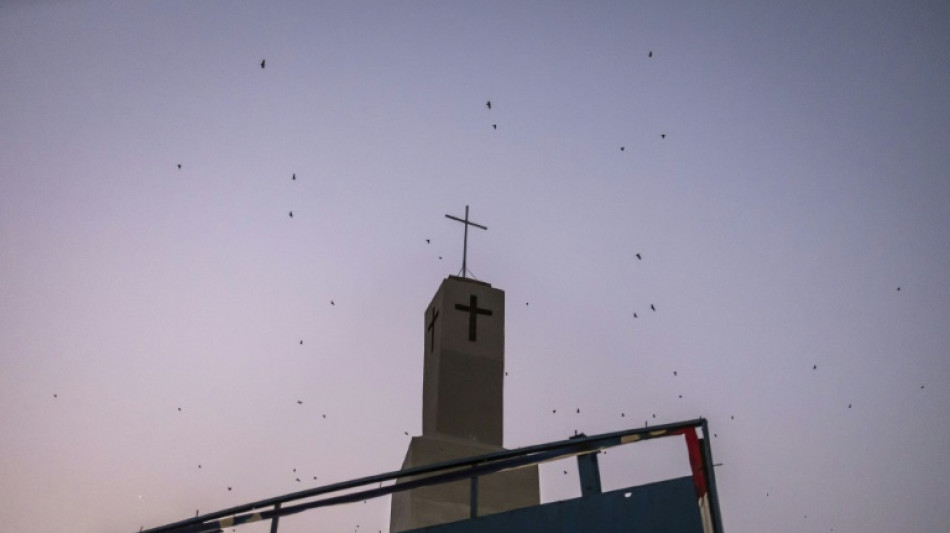
-
 Meta quarterly profit climbs despite big cloud spending
Meta quarterly profit climbs despite big cloud spending
-
US Supreme Court weighs public funding of religious charter school
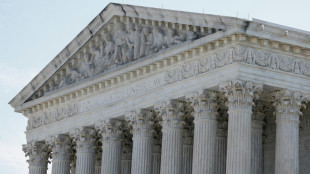
-
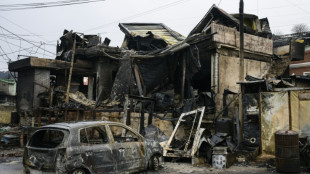 Climate change made fire conditions twice as likely in South Korea blazes: study
Climate change made fire conditions twice as likely in South Korea blazes: study
-
Amorim says not even Europa League glory can save Man Utd's season
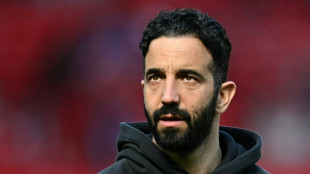
-
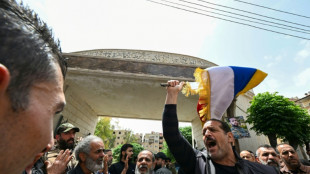 Syria reports Israeli strikes as clashes with Druze spread
Syria reports Israeli strikes as clashes with Druze spread
-
Ukraine, US say minerals deal ready as suspense lingers
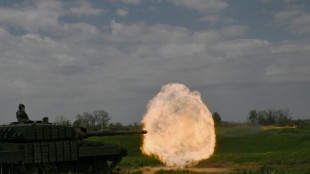
-
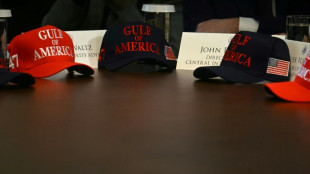 Everything is fine: Trump's cabinet shrugs off shrinking economy
Everything is fine: Trump's cabinet shrugs off shrinking economy
-
Chelsea boss Maresca adamant money no guarantee of success

-
 Wood warns England cricketers against 'dumb' public comments
Wood warns England cricketers against 'dumb' public comments
-
US economy shrinks, Trump blames Biden
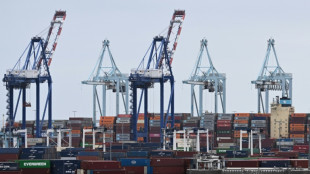
-
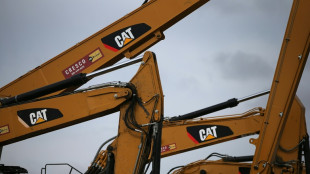 Caterpillar so far not hiking prices to offset tariff hit
Caterpillar so far not hiking prices to offset tariff hit
-
Japan's Kawasaki down Ronaldo's Al Nassr to reach Asian Champions League final
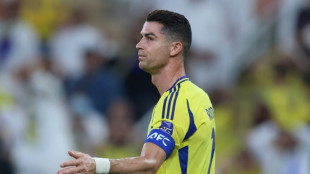
-
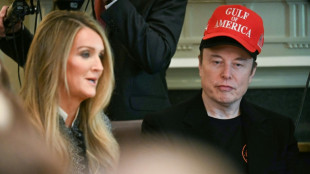 Trump praises Musk as chief disruptor eyes exit
Trump praises Musk as chief disruptor eyes exit
-
Chahal hat-trick helps Punjab eliminate Chennai from IPL playoff race

-
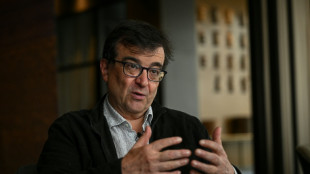 Pope Francis saw clergy's lack of humility as a 'cancer': author
Pope Francis saw clergy's lack of humility as a 'cancer': author
-
Weinstein accuser recounts alleged rape at assault retrial in NY
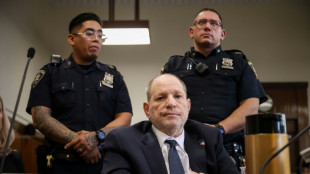
-
 Piastri heads into Miami GP as the man to beat
Piastri heads into Miami GP as the man to beat
-
US economy unexpectedly shrinks in first quarter, Trump blames Biden
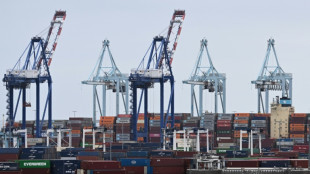
-
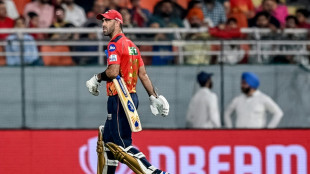 Maxwell likely to miss rest of IPL with 'fractured finger'
Maxwell likely to miss rest of IPL with 'fractured finger'
-
Syria reports Israeli strikes after warning over Druze as sectarian clashes spread
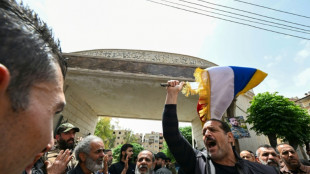
-
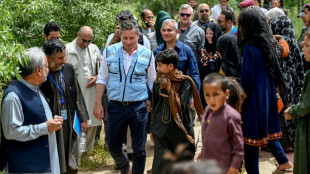 Despite war's end, Afghanistan remains deep in crisis: UN relief chief
Despite war's end, Afghanistan remains deep in crisis: UN relief chief
-
NFL fines Falcons and assistant coach over Sanders prank call
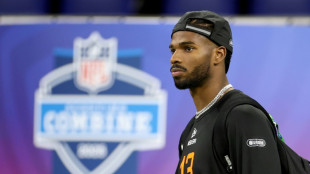
-
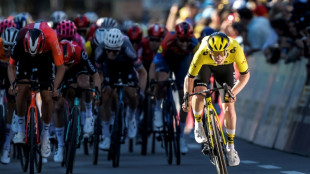 British teen Brennan takes stage 1 of Tour de Romandie
British teen Brennan takes stage 1 of Tour de Romandie
-
Swedish reporter gets suspended term over Erdogan insult
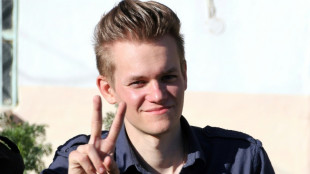
-
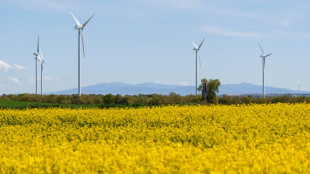 Renewable energy in the dock in Spain after blackout
Renewable energy in the dock in Spain after blackout
-
South Africa sets up inquiry into slow apartheid justice
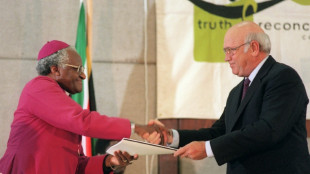
-
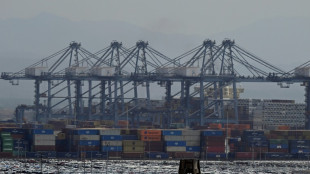 Stocks retreat as US GDP slumps rattles confidence
Stocks retreat as US GDP slumps rattles confidence
-
Migrants' dreams buried under rubble after deadly strike on Yemen centre
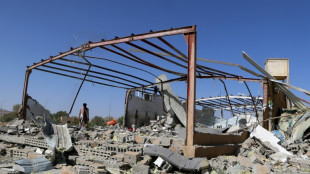
-
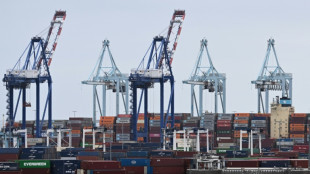 Trump blames Biden's record after US economy shrinks
Trump blames Biden's record after US economy shrinks
-
UK scientists fear insect loss as car bug splats fall
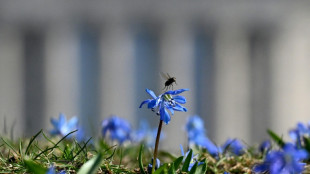
-
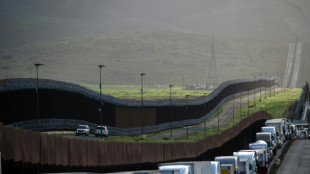 Mexico avoids recession despite tariff uncertainty
Mexico avoids recession despite tariff uncertainty
-
Rwandan awarded for saving grey crowned cranes
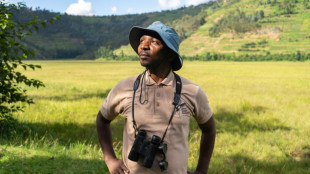
-
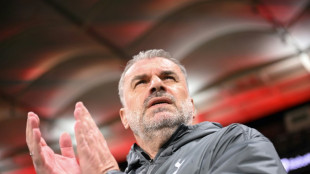 Spurs have 'unbelievable opportunity' for European glory: Postecoglou
Spurs have 'unbelievable opportunity' for European glory: Postecoglou
-
Microsoft president urges fast 'resolution' of transatlantic trade tensions
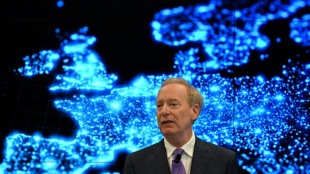
-
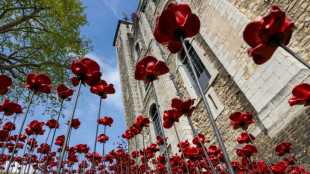 Poppies flourish at Tower of London for WWII anniversary
Poppies flourish at Tower of London for WWII anniversary
-
US economy unexpectedly shrinks on import surge before Trump tariffs
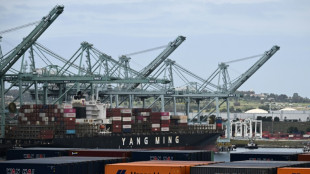
-
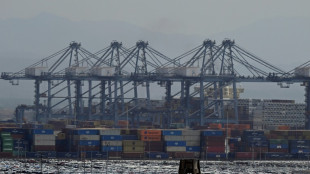 Stocks drop after US economy contracts amid tariffs turmoil
Stocks drop after US economy contracts amid tariffs turmoil
-
US economy unexpectedly shrinks on import surge ahead of Trump tariffs
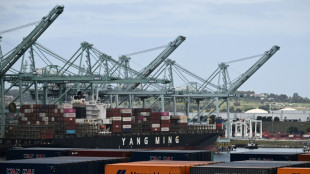
-
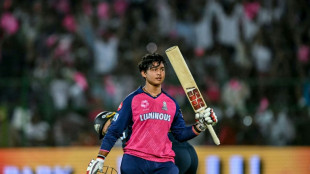 Dravid says Suryavanshi, 14, needs support from fame
Dravid says Suryavanshi, 14, needs support from fame
-
Arsenal can win 'anywhere' says Merino after Champions League defeat by PSG

-
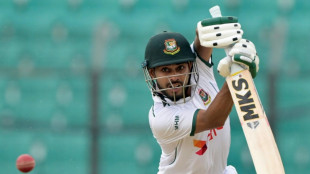 Bangladesh crush Zimbabwe by an innings in second Test
Bangladesh crush Zimbabwe by an innings in second Test
-
Swiatek recovers against Keys to reach Madrid Open semis
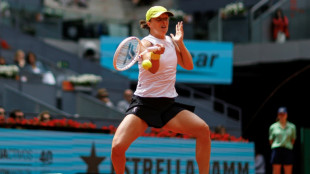
-
 Spurs captain Son out of first leg of Europa League semi-final
Spurs captain Son out of first leg of Europa League semi-final
-
US economy unexpectedly shrinks in first three months of Trump presidency
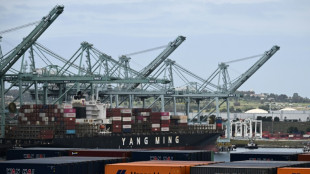
-
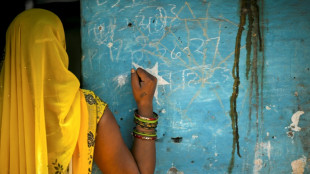 India to ask caste status in next census for first time in decades
India to ask caste status in next census for first time in decades
-
Burkina junta rallies supporters after claimed coup 'plot'
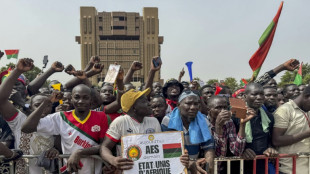
-
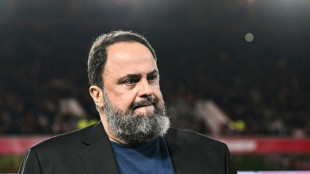 Forest owner Marinakis steps back as European qualification looms
Forest owner Marinakis steps back as European qualification looms
-
US economy unexpectedly contracts in first three months of Trump presidency
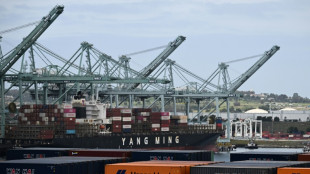
-
 Bilbao will give 'soul' to beat Man United: Nico Williams
Bilbao will give 'soul' to beat Man United: Nico Williams
-
Sweden arrests teen after triple killing
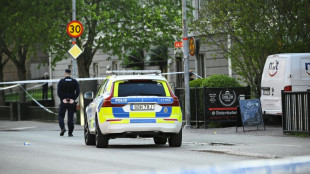

Nigerian mixed-faith families sense danger as violence flares
When the news came through of yet another massacre in the countryside in Nigeria's volatile Plateau state, local Christian Jamaima Haruna was terrified for her Muslim husband.
The slayings in the Bokkos district left 52 dead -- one of two major bouts of suspected intercommunal violence this month, in a state where Muslim herders and mostly Christian farmers regularly clash.
Haruna, 39, was selling potatoes in the market in Jos, the state capital. But her husband was travelling in the area where the killings were reported, in search of fresh produce for their business.
The fact that her husband was Muslim provided Haruna no comfort that he would be safe against killers on a rampage across the mostly Christian villages.
"I was terrified. The situation was tense, and I became so worried thinking about him. I instantly called his phone number about three times -- the calls did not go," Haruna told AFP.
Theirs is one of many mixed-faith marriages in Plateau, a grey area among the sometimes divisive rhetoric that often comes from Nigerian media and politicians whenever intercommunal violence flares.
Haruna's husband was fine, but what exactly happened in Bokkos earlier this month remains unclear.
Survivors told AFP that unidentified gunmen stormed the villages. A local official said the attackers spoke the "Fulani dialect".
A local pastoralist association representing Muslim Fulani herders slammed the remarks as irresponsible.
But amid the long-standing tensions in the area, things have sharply escalated: this week, another attack by unidentified gunmen left another 52 dead, this time in the villages of Zike and Kimakpa.
Politicians including Plateau state governor Caleb Manasseh Mutfwang said the massacres were part of a "genocide" that was "sponsored by terrorists".
Critics say that rhetoric masks the true causes of the conflict -- disputes over land and a failure by authorities and police to govern the countryside.
"It all boils down to the failure of governance at the lower level of Nigeria," said Isa Sanusi, Nigeria country director at Amnesty International. "The space has been taken over by impunity."
Rhetoric about a "genocide", he said, meanwhile "creates a situation where the fact that people accept to live together is now put to the test".
- History of religious mixing -
Mixed-faith families have long existed in Plateau, which lies midway between the country's mainly Christian south and mostly Muslim north.
The state's complicated history includes both communities living side by side, as well as explosions of violence.
The capital Jos saw deadly sectarian riots in 2001 and 2008 that together killed more than a thousand people, according to rights groups. Peace efforts in the city since then have brought calm, though the countryside remains restive.
Land grabbing, political and economic tensions between local "indigenes" and those considered outsiders, as well as an influx of hardline Muslim and Christian preachers, have heightened divisions in recent decades.
Land used by farmers and herders, meanwhile, is coming under stress from climate change and human expansion, sparking deadly competition for increasingly limited space.
When violence flares, weak policing all but guarantees indiscriminate reprisal attacks.
Growing up, Solomon Dalung, a 60-year-old Christian, would go to the mosque when he was staying with his cousins, who lived in a town that did not have a church.
"Each time there is any crisis, religion and ethnicity is used as a fuel" to escalate it, said the former state sports minister.
At the same time, like other politicians, he insisted in an interview with AFP that the killings were "genocidal", accusing the attackers of "extermination of another group".
- 'In the spotlight' -
Tensions in Plateau can be especially dangerous for mixed families, as it "puts them in the spotlight", said Sanusi.
Usman Ahmad, a 71-year-old Muslim who has been married to a Christian for four decades, was also in the Jos market when he heard news of the Bokkos killings.
While he felt a sense of relief that his immediate community "is more enlightened" about mixed families, he also felt the need "to rush home and see what we can do in terms of appealing for calm", he said.
"Many times we sit to think (about) why this crisis refused to end. Is it because of religion, is it about tribalism or is it about wealth?" Jamaima Haruna told AFP from her market stand.
"Can't we think of other ways to respect our differences?"
A.Ruegg--VB

